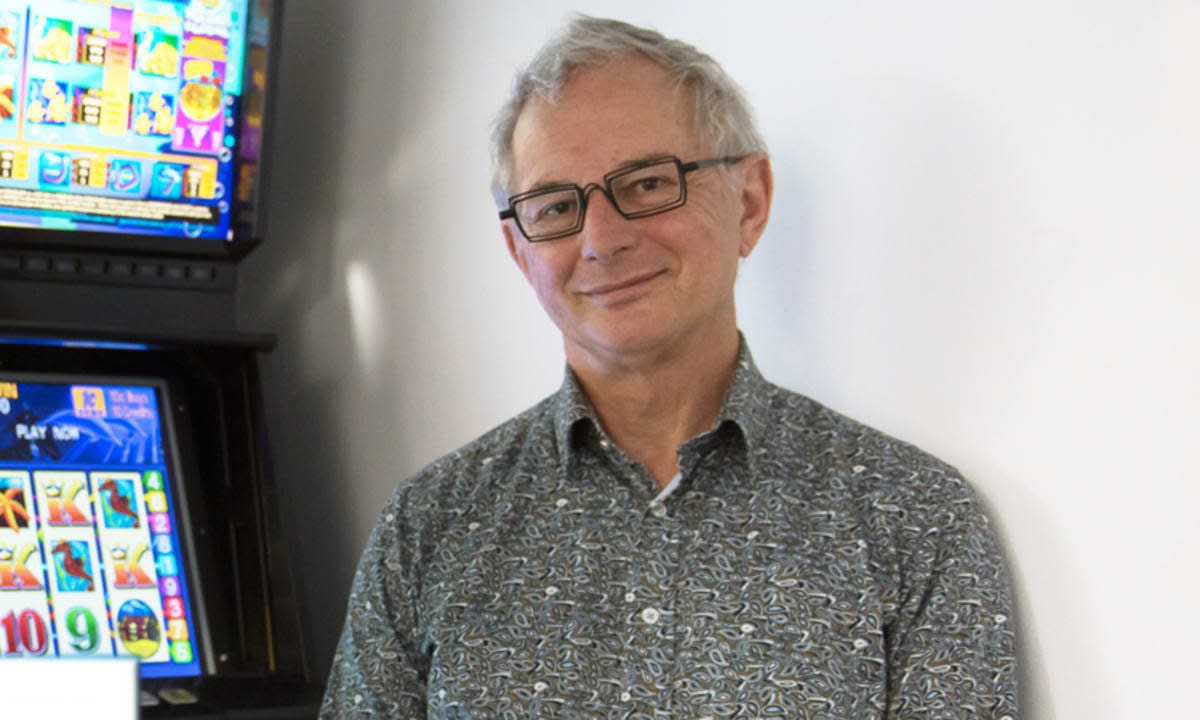
The heroin glut of the late 1990s sent Charles Livingstone to Maribyrnong Council, where he was asked to provide public health advice on how to deal with the tragedy on the streets.
“If you walked from council offices into town to have lunch you would be tripping over people who had overdosed, would have to call the ambulance and so on,” he recalls. But what made an equally deep impression on him was “the enormous amount of poker machines everywhere in the west”. He recalls the lines of people forming outside venues in the morning, desperate to enter gambling halls.
Intrigued, Livingstone then “went around Melbourne and counted machines. There was an over-concentration in areas of disadvantage. It occurred to me that their effect was to keep poor people poor.”
He was inspired to change his PhD topic, to concentrate on the social and economic history of poker machines and their proliferation in Victoria (his original topic concerned industrial relations reforms and their impact on public health). Dr Livingstone is now head of the Gambling and Social Detriments unit at Monash University, where he's also a senior lecturer.

“Gambling is in the big three of harmful addictions in Australia – after tobacco and alcohol. It does more harm than illicit drug consumption, more harm than mental health issues ... If you use poker machines weekly you have a one in three risk of the habit escalating – more than once a week and you have a problem.”
And that's what poker machine manufacturers want, he says – 62 per cent of their revenue comes from people in the “two highest harm categories”. Australians spend more than $11 billion a year playing pokies – 70 to 80 per cent of all problem gamblers are hooked on them. We gamble more than any other nation.
"It does more harm than illicit drug consumption, more harm than mental health issues."
Ask Livingstone why, and his answer is surprising – he blames the new federalism introduced by former prime minister Malcolm Fraser and then pursued by Bob Hawke and Paul Keating. The policy saw revenue cuts to state budgets, with state governments finding a solution in pokies.
“Victoria receives about $1.1 billion from the poker machines in clubs and pubs – about the operating costs of a major public hospital,” he says. “The benefits are privatised; profits go to shareholders and owners, harms go to society – ill-health, suicide, family break-ups. These don’t pop up on balance sheets – the harms are dispersed, disparate, hard to account and track.”
In addition, the machines have evolved from the clunky “one-armed bandits” that first made their appearance in Sydney leagues clubs after the war to the beeping, flashing, computer-operated machines that are everywhere today. Livingstone and his colleagues at the Monash Institute of Cognitive and Clinical Neurosciences argue that these newer machines have been deliberately designed to “hook” players.
Read more: Removing pokies from Tasmania’s clubs and pubs would help gamblers without hurting the economy
On trial
Livingstone has a Dolphin Treasure machine propped on a cabinet in the corner of his office. Dolphin Treasure is the focus of a case now before the Federal Court. The case was launched by Shonica Guy, who says she was addicted to poker machines for 14 years, and who is being represented pro-bono by law firm Maurice Blackburn. The firm says it's not seeking damages, but wants machines to be designed fairly, and for players to be clearly informed about their chances of winning.
The lawsuit alleges the Dolphin Treasure deliberately gives players the impression that they have had a “near miss”, partly through the uneven spread of symbols across its five spinning reels. The first four reels have 30 symbols while the fifth and final reel to stop spinning has 44 symbols, which makes it harder to win.
The constant, apparent near misses, reinforced by beeps and flashing lights, has a physiological effect, triggering a dopamine release that induces “euphoria and a pleasant sensation”, says Livingstone. “It's better than booze or drugs or sex for some people.”
Another allegation is that Dolphin Treasure's advertised return rate of 87.8 per cent gives the false impression that a player will retain 87.8 per cent of the money they bet. Actually, it means that for every dollar spent, on average 12. 2 cents are retained. “Very few people comprehend that,” says Livingstone. Dolphin Treasure “gives a one in 35,640,000 chance of winning the maximum prize of perhaps $2500 – the odds are much worse than the lottery, the payoff is less, but it costs you more”.
Anti-poker machine campaign a just cause
He likens the anti-poker machine campaign to the fight against tobacco. The gaming industry, like big tobacco, has deep pockets, links to government and is also popular among some of “the punters”. Yet the anti-smoking lobby became ascendant in the long run, because its cause was just.
“Poker machines are not a magic pudding,” says Livingstone. “If the money that goes into the machines went back into the community – to buy food, to pay rent, to buy shoes or clothes for the kids – we would all be better off. I think [the fight] will be quicker than tobacco. But it won’t be solved with a single court case.”





